- TOP
- About us
- Ikeuchi's people
- Rigorousness of Towel Making Conveyed by Skilled Craftsmen
Vol.5
Rigorousness of Towel Making Conveyed by Skilled Craftsmen
Mr. Abe, one of IKEUCHI ORGANIC's veteran craftsmen, is well-liked by younger craftsmen and is nicknamed "Abeyan" in the company, as he was introduced in the TV program "Sarameshi. He also experienced the relocation of production to China, which occurred in the Japanese towel industry in search of cheap labor, and witnessed the hunger of young craftsmen and the competitive society there. He contrasted this scene with IKEUCHI ORGANIC, which is made by a small number of people, and spoke straightforwardly about his message for young craftsmen.
Abe, Production Engineering Dept.
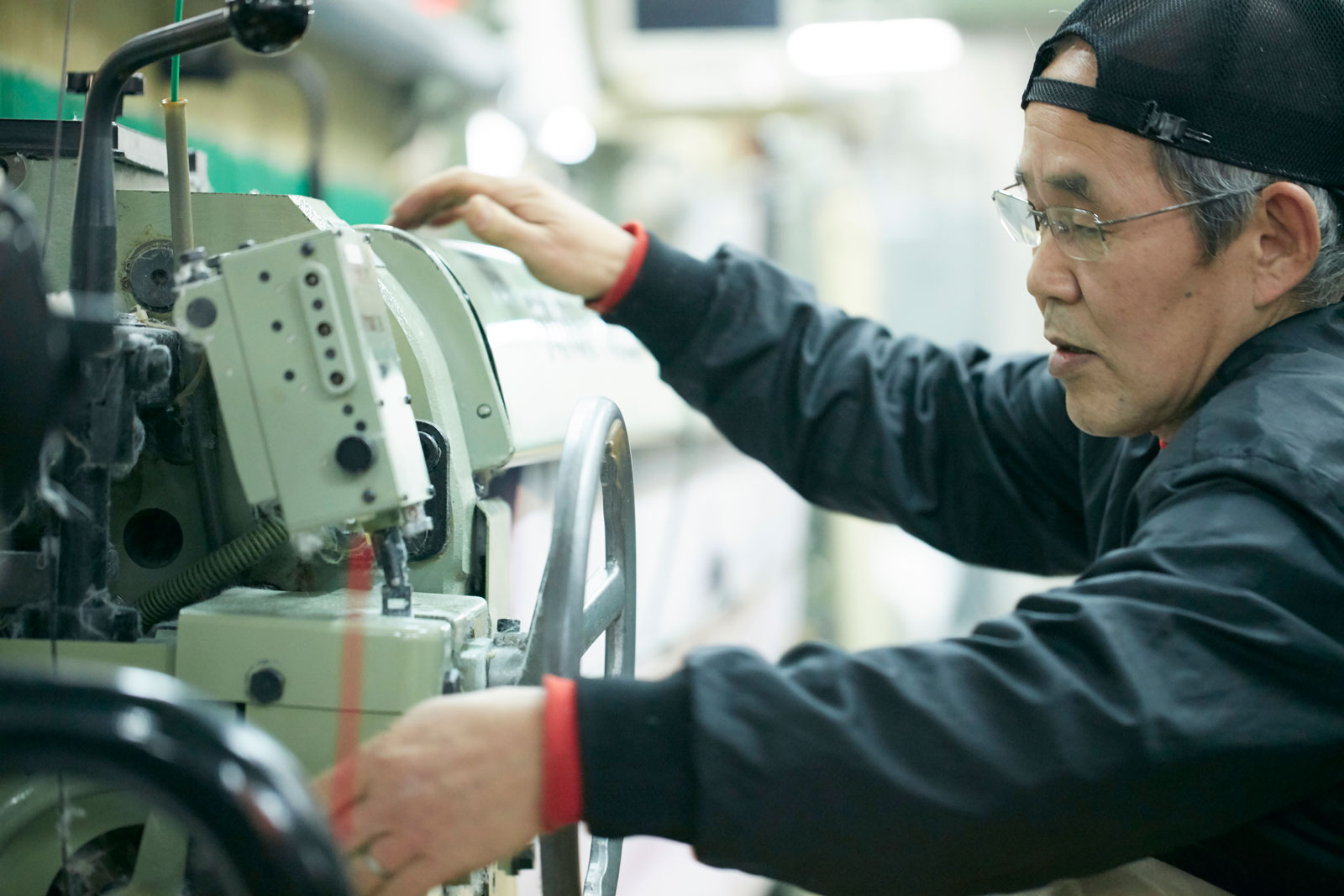
A 36-year career in Japan and China
–Please tell us about your work.
It’s like machine maintenance. I have been weaving, stretching, and connecting ( *1), and I have also been teaching the mechanics of the machines for many years, decades even.
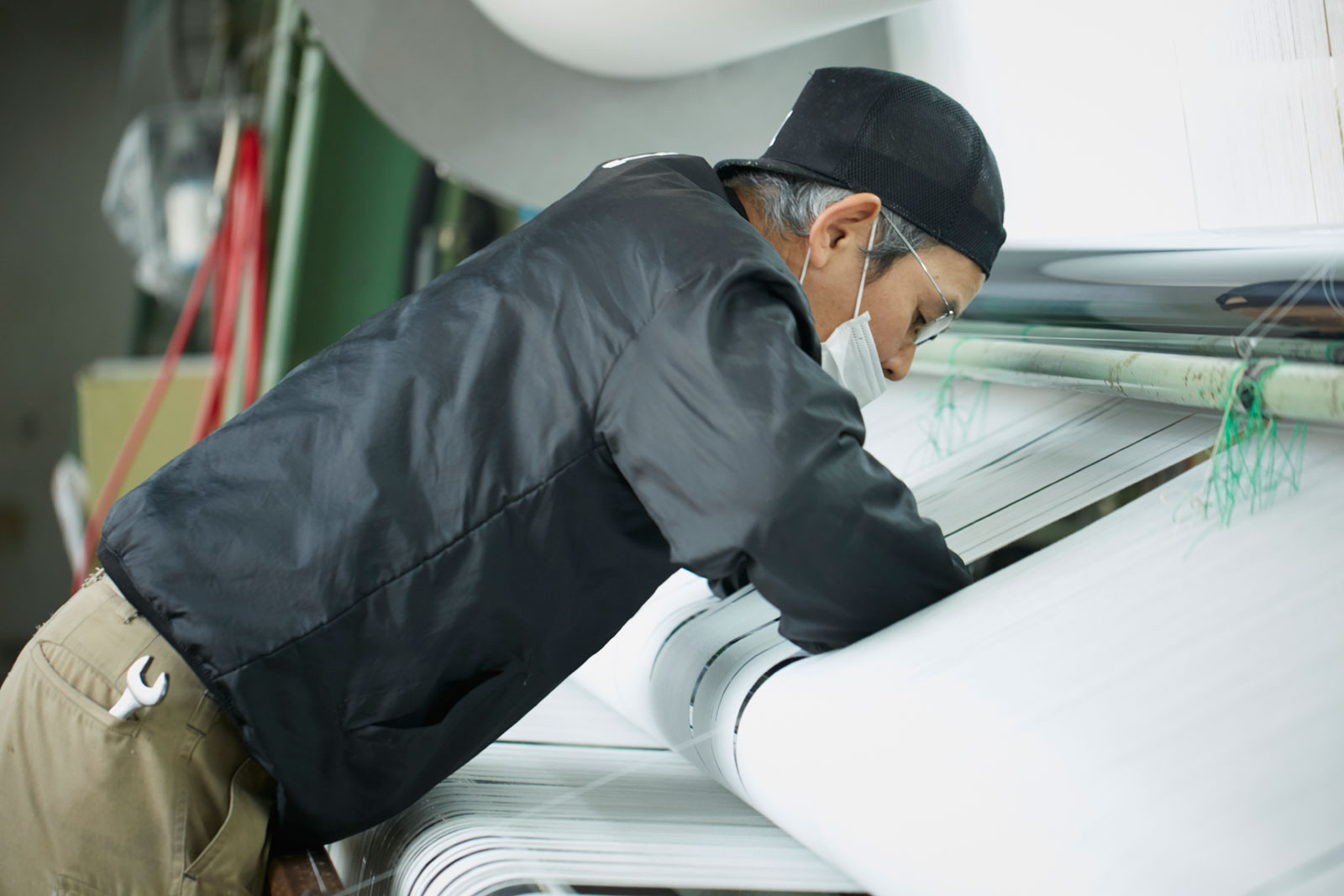
–How long have you been in the towel industry?
I’ve been doing it since I was 25 years old. (Note: I have been in the towel industry for 36 years.) I used to go to China and teach Chinese people everything from adjustment to weaving. The company I worked for before said they were going to open a factory in China, so I went to China and stayed there for about six and a half years.
–Where did you go in China?
Dalian. I was there for about six and a half years.
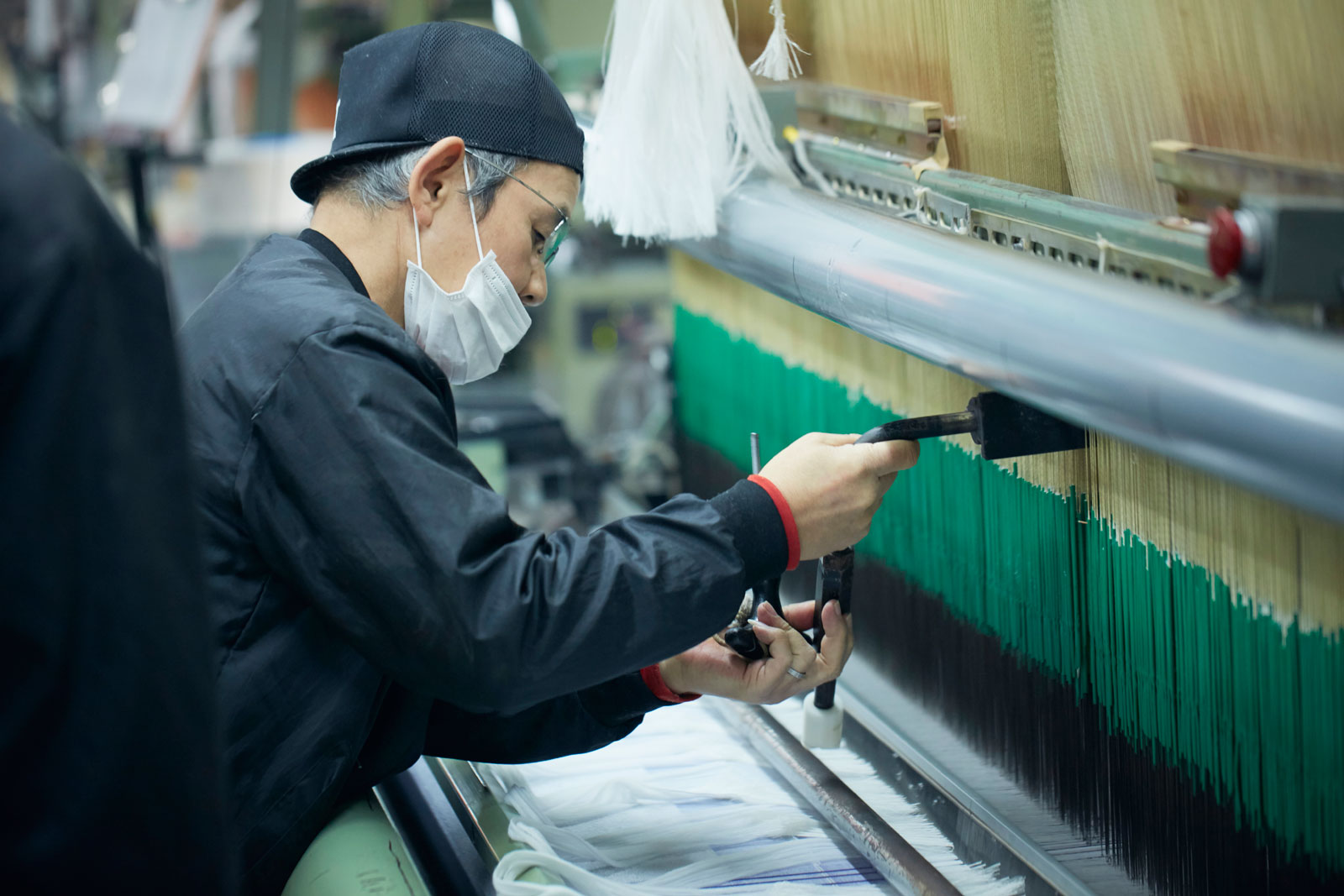
When you are over there, you are not alone, no matter what you do.
–What is the biggest difference between China and Imabari?
When I was in China, I couldn’t call for help because I was the only one on site (who could maintain the loom). Here, I can call for help. Over there, you are on your own, no matter what you do. And if I said, “The machine is broken,” I would have to fix it myself. If it were here, you could call a kiryoya ( *2) or do other things.
If it is here (Imabari), there is no problem. In China, if I didn’t work, the loom would stop. If you say you don’t have the parts, you have to start the loom even if you have to take them from the machines that are not busy. If you say, “I’m responsible for everything during that time. If it was here, the machine broke down. If you say, “I don’t know,” call a machine shop and they will fix it. They have parts, but they don’t even have parts. If you say, “It’s broken,” they have to fix it even if they have to attach the broken part to the machine.
That is the beauty of doing business in a towel town. And even if there is no machine shop, other companies have access to machine shops, so they can borrow from other companies. We can order them from the manufacturer. I don’t have much trouble anymore.
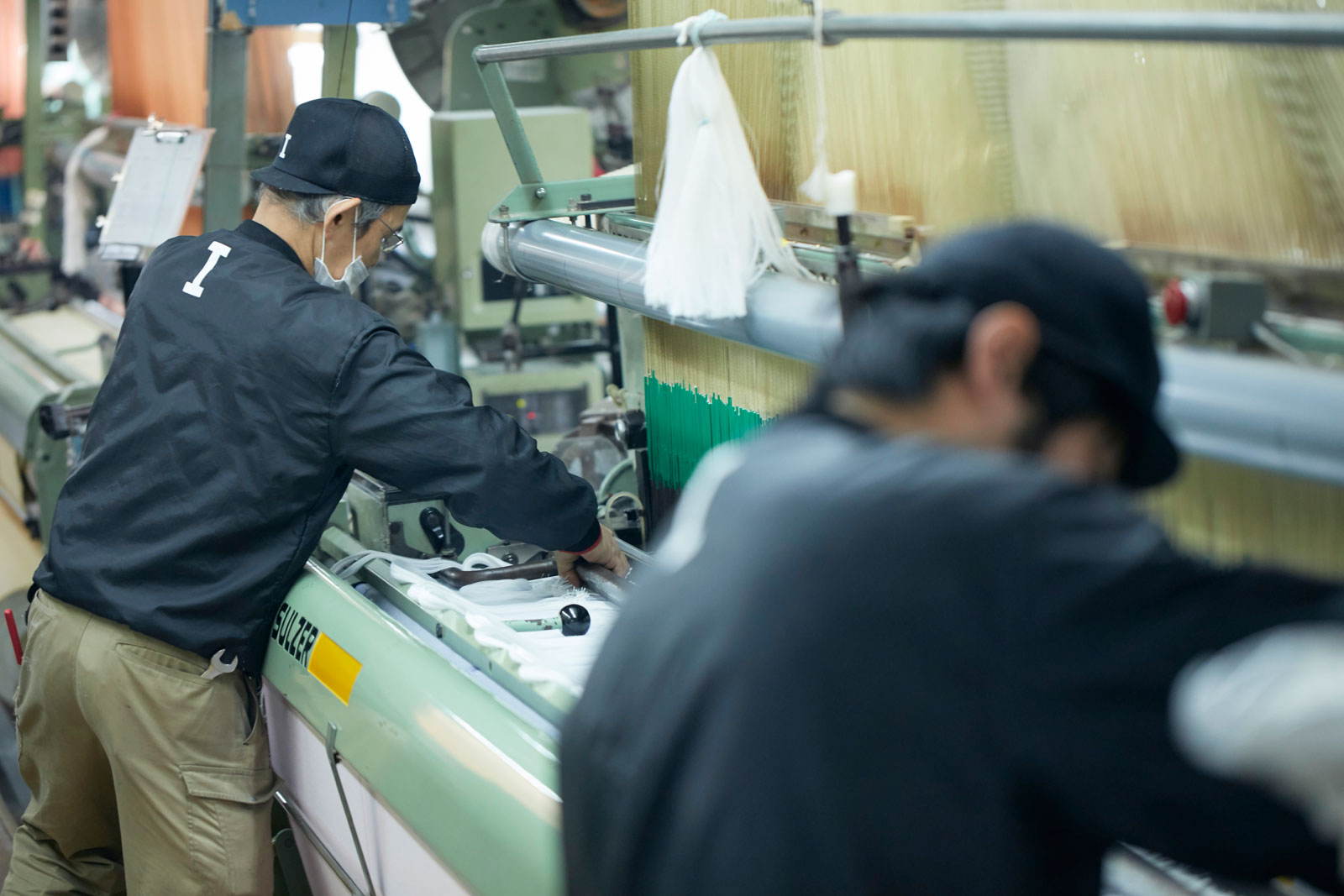
I wish they would compete. Is it because of the way I teach them?
–Do you feel that the young weavers are accepting the skills you have cultivated?
I don’t know (laughs).
There are only a few people here. There are not many people in the weaving field ( hataba*3). When I was working in China, there were 50 people on site alone, so there was competition. Here, there is no competition. When you start at the same time, you want to do better than that person, but there is no competition. I’m sorry if I say that teaching doesn’t have much of an impact. If they were in China, they would say, “I want to do better even if I have to drag them down.
–But in Ikeuchi, they don’t go that far?
Not here. Even if I told them it would be better, they would just say, “Hmmm,” because there is no competition. I don’t know. I want them to compete. Maybe I’m not teaching them well enough.
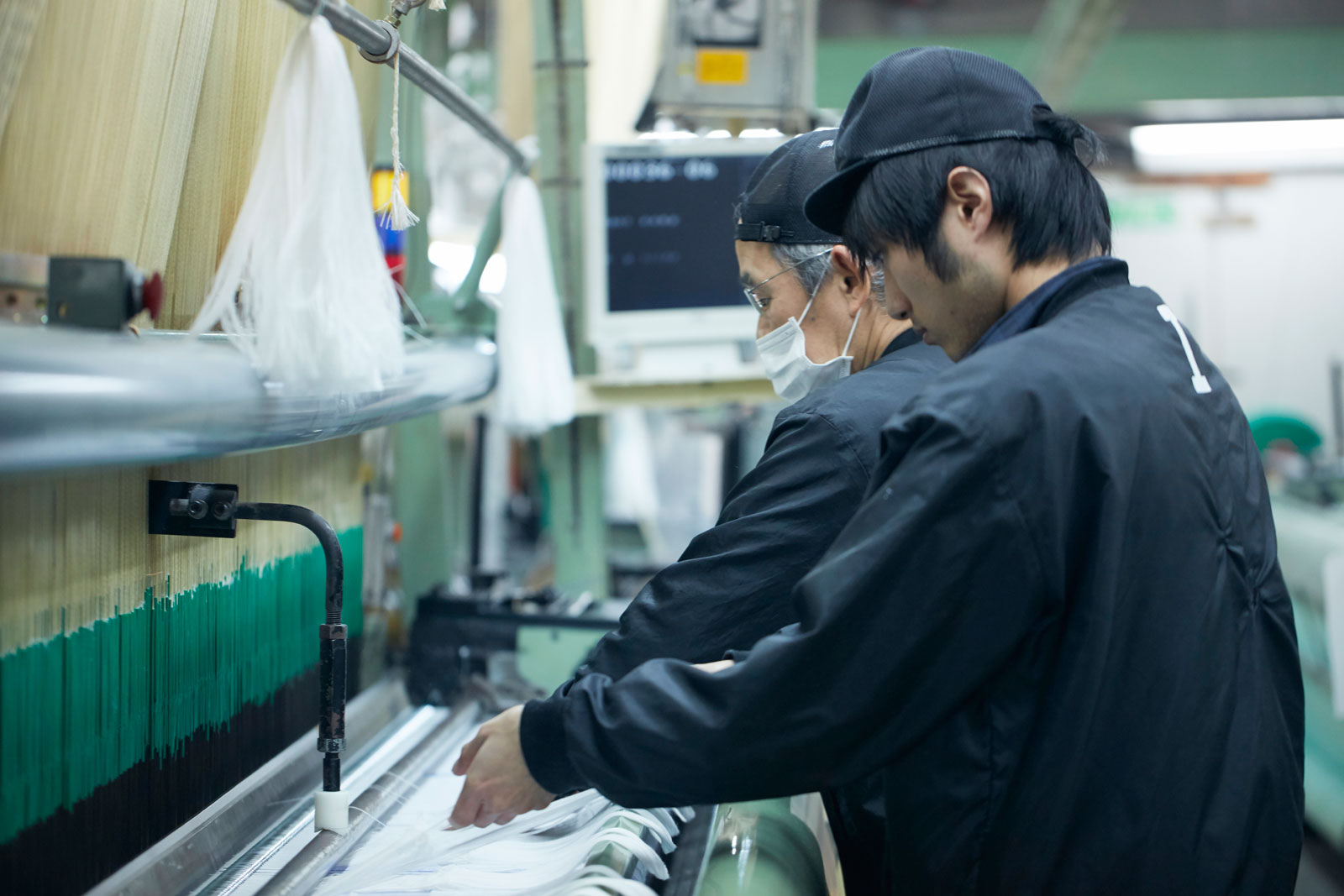
–You don’t think young people have a competitive spirit, is that right?
I try to teach them, but it’s not easy. If they have a competitive spirit, they want to learn before others and be better than others, but if they don’t have that spirit, they don’t care about anything else and won’t learn after today. I want the young people to be able to do that kind of work with a sense of purpose.
I want them to remember important things, but it’s not easy. There are many problems, though. Is it bad teaching or bad learning? It’s like whether the egg comes first or the chicken comes first.
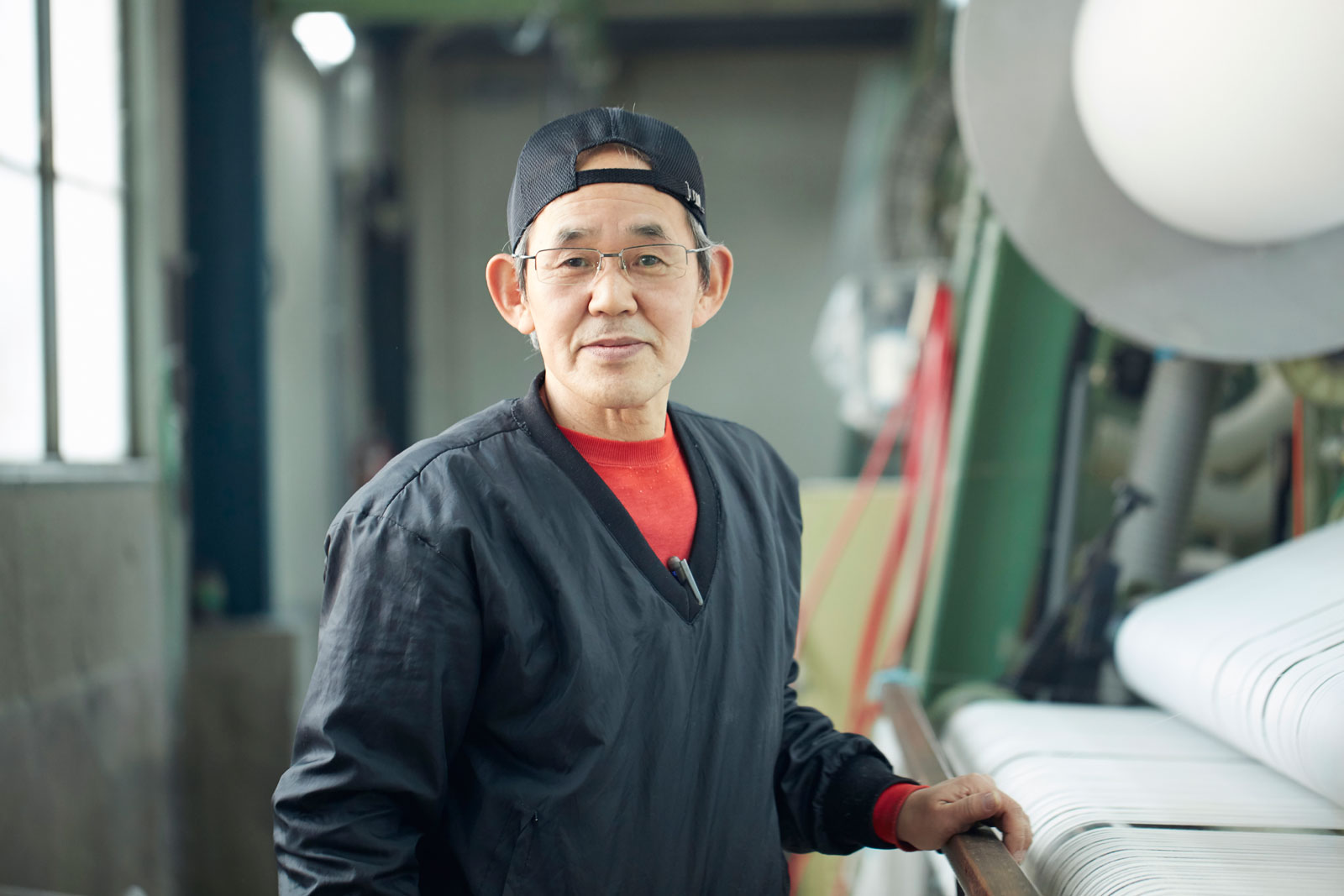
If young people are going to work in towel shops, I want them to take it seriously.
–What do you want to tell young people?
I want them to learn a lot. If you want to make a living at this job, you need to learn more and more. There are no jobs now, and there will be no jobs when I turn 30 (years old). There are not many places to work. If young people want to work in towel shops, I want them to take it seriously. If they don’t think they can continue here, I want them to go somewhere else as soon as possible. I want them to choose one or the other while they are here. I have a feeling like that.
–I think it’s very important to have expectations.
It’s not about whether the company is good or bad. As a teacher, I want you to learn to take it seriously.
Interview January 2016
Interview and text by Mutaguchi, Kamio
Photographer/ Yuji Kimura (Kimura Photo Office)
Terminology】】
*1: The work required to set a huge spool of yarn (shinbei) with 3,000 to 5,000 threads wound around it on a new loom.
*2: A firm that produces and sells weaving tools.
*3: Inside a weaving factory where looms are installed
Ikeuchi's people
-
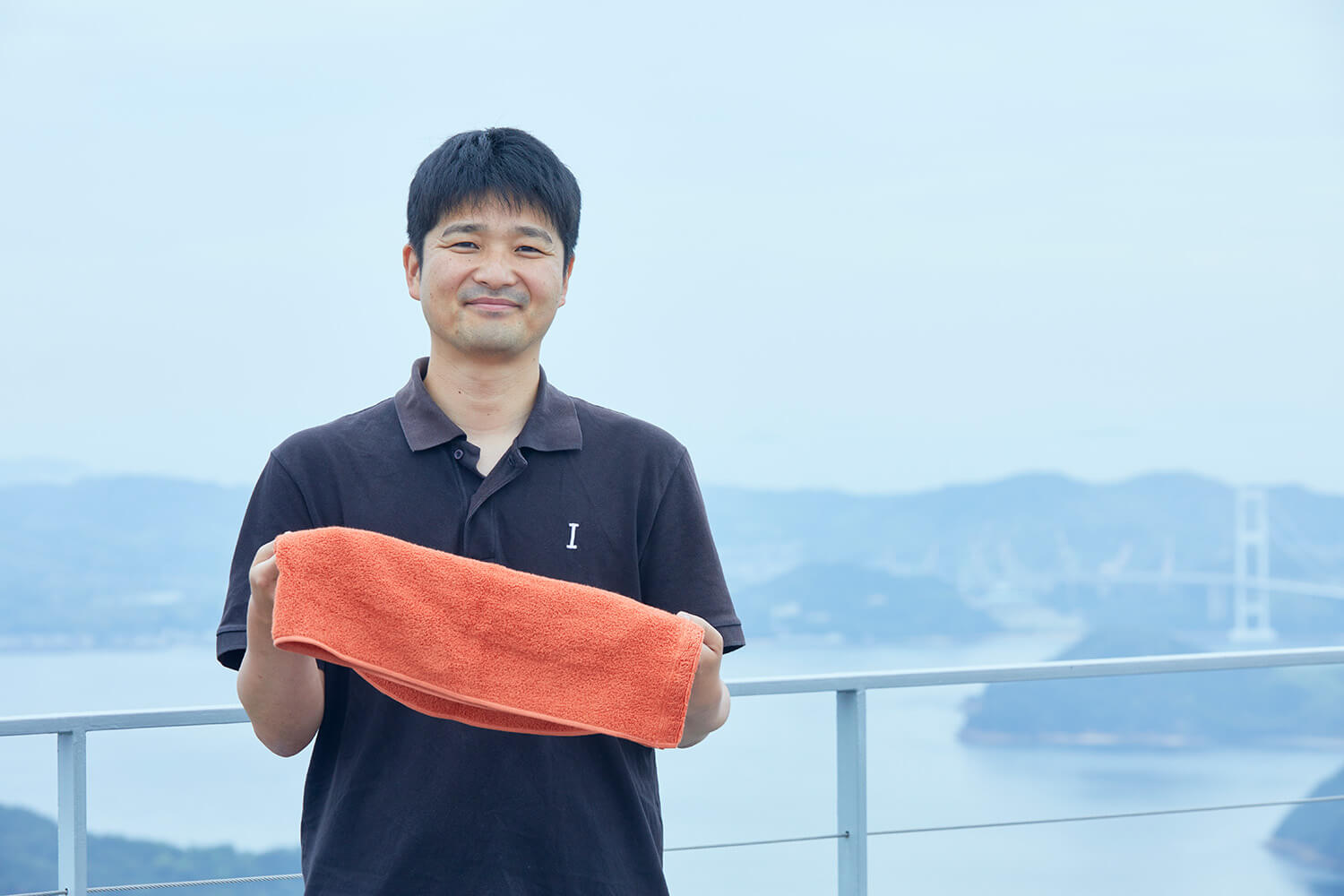
Vol.56
We want you to use our online store as if you had visited the store.
We interviewed Mr. Ishikawa, who is in charge of customer support and shipping management to attend to customer requests and inquiries received at the online store.
Web Customer support and shipping management Ishikawa
-
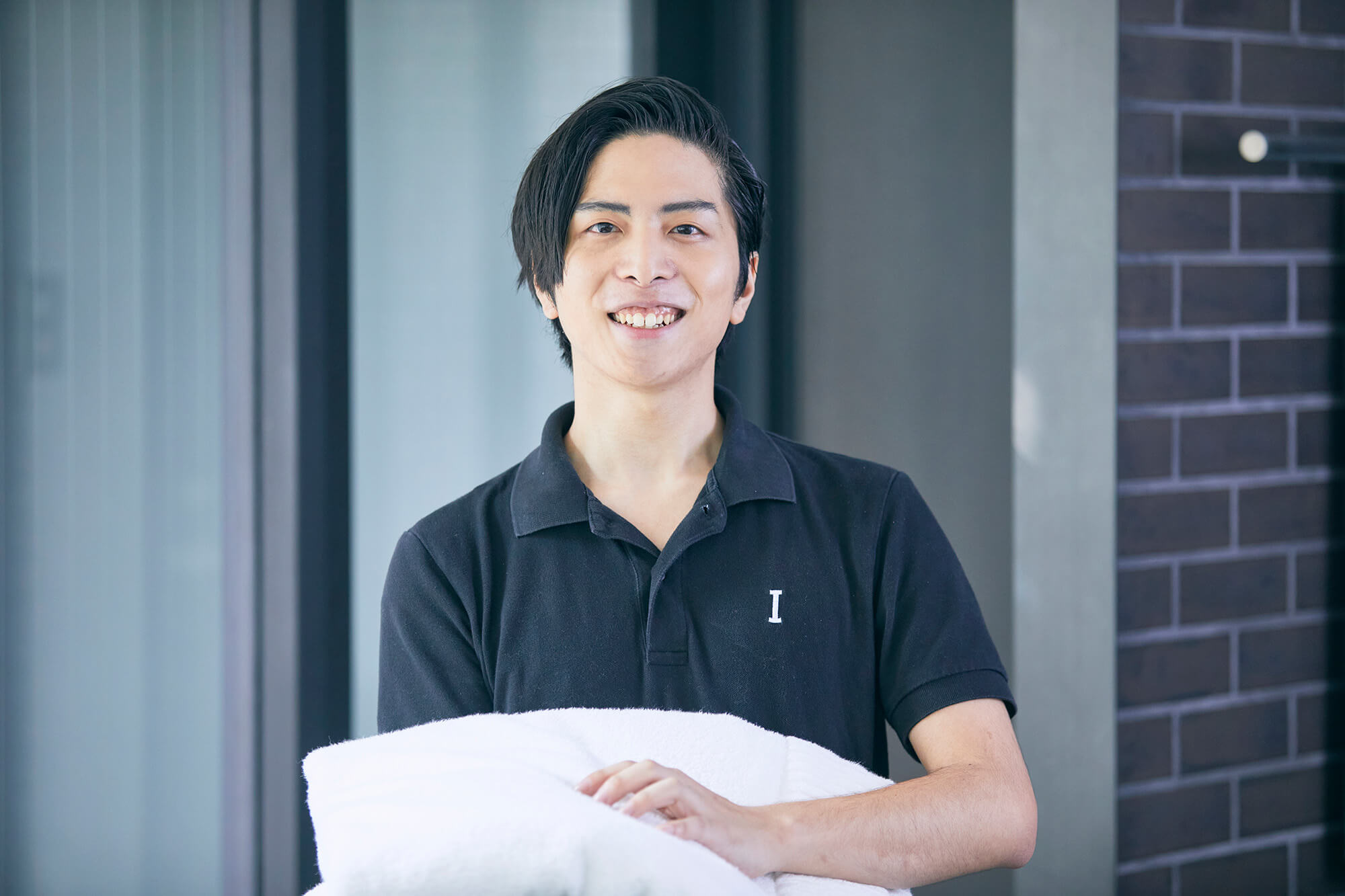
Vol.55
From a fan to an employee. Deliver what you love to as many people as possible.
Ms. Minami has been a fan of IKEUCHI since she was a student, participating in open houses. We asked him to tell us why he applied to become an employee and what he hopes to achieve in the future.
Tokyo Store South
-
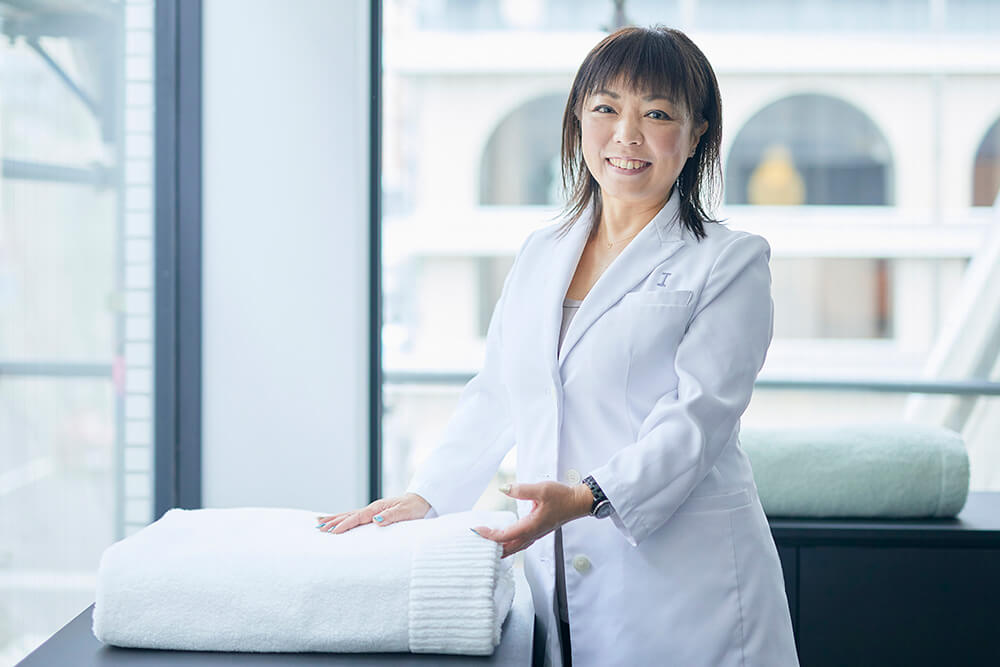
Vol.54
We want to be a place where all people can feel light and hope.
Mr. Masuda, who is in charge of both stores as sales conductor and store manager, talked about what the stores are aiming for.
Sales Conductor/Store Manager Masuda

